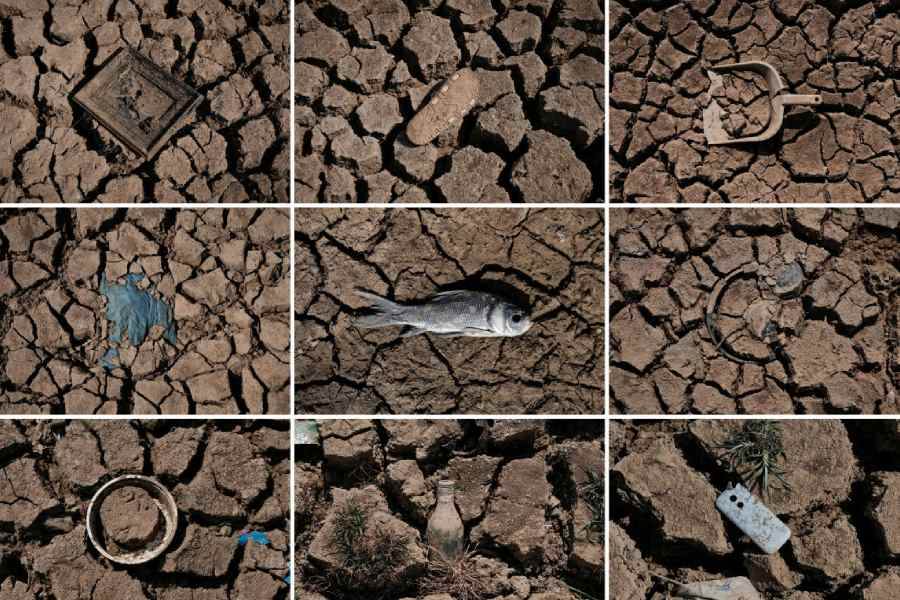The summer of 2023 was the hottest in the northern hemisphere over the past 2,000 years, scientists said on Tuesday, in a study that analysed year-by-year temperature records since the time the Kushans and Satavahanas ruled India.
The researchers in Germany and the UK have found that the June-July-August land temperatures in 2023 across the extra-tropical northern hemisphere region were on an average 2.07 degrees Celsius warmer than the average between 1850 and 1900, as measured through instrumental temperature records.
Their analysis has also shown that the 2023 summer temperatures exceeded the long-term average between AD 1 and AD 1890 by 2.2 degrees Celsius. The scientists used data from tree rings around the world to reconstruct a temperature record over the past 2,000 years.
Tree rings can provide snapshots of ancient climate. Trees, whose growth depends heavily on moisture, will have wider rings during rainy periods and narrower rings during dry periods. Trees whose growth depends heavily on temperature will have
narrow rings during cold periods and wider rings during warmer periods.
In March this year, the World Meteorological Organisation labelled 2023 as the warmest year in the 174-year observational record. The 2023 temperatures shattered the record of the previous warmest years, 2016 and 2020, the WMO had said.

A water tanker driver fills his truck from a borewell in Bengaluru. Reuters.
Now, the study by researchers at the University of Cambridge and Johannes Gutenberg University has established the 2023 summer in the northern hemisphere as the hottest over the past two millennia. Their study was published in the journal Nature on Tuesday.
“I’m not surprised — this was expected. The year 2023 is really, really outstanding. But this is also a stepwise continuation of a trend that will continue. It is very worrying,” said Jan Esper, a professor of climatology at the Johannes Gutenberg University, Mainz.
Esper and his colleagues Max Torbenson and Ulf Buntgen have attributed the exceptionally high summer temperatures in 2023 to both global warming and El Nino, a subtle rise in the sea surface temperatures in the Pacific Ocean that can impact global weather.
“The warming in 2023 driven by greenhouse gases was additionally amplified by evolving El Nino conditions,” Esper said. The combination resulted in longer and more severe heatwaves and extended periods of drought.
Their finding that the 2023 summer was 2.07 degrees Celsius warmer than the average of 1850-1900 indicates that the northern hemisphere has already breached the 1.5-degrees-Celsius threshold cap adopted by the 2015 Paris Agreement.
Countries around the world had resolved under the agreement to try and cap global warming to below 1.5 degrees Celsius to avert catastrophic effects of global warming.
The tree-ring data has shown that most of the cooler periods over the past 2,000 years such as during the 6th century and the early 19th century were the outcome of sulfur-rich volcanic eruptions that caused soot in the atmosphere to block sunlight, lowering temperatures.
The 2023 summer was 3.93 degrees Celsius hotter than the coolest summer over the past 2,000 years in AD 536.











